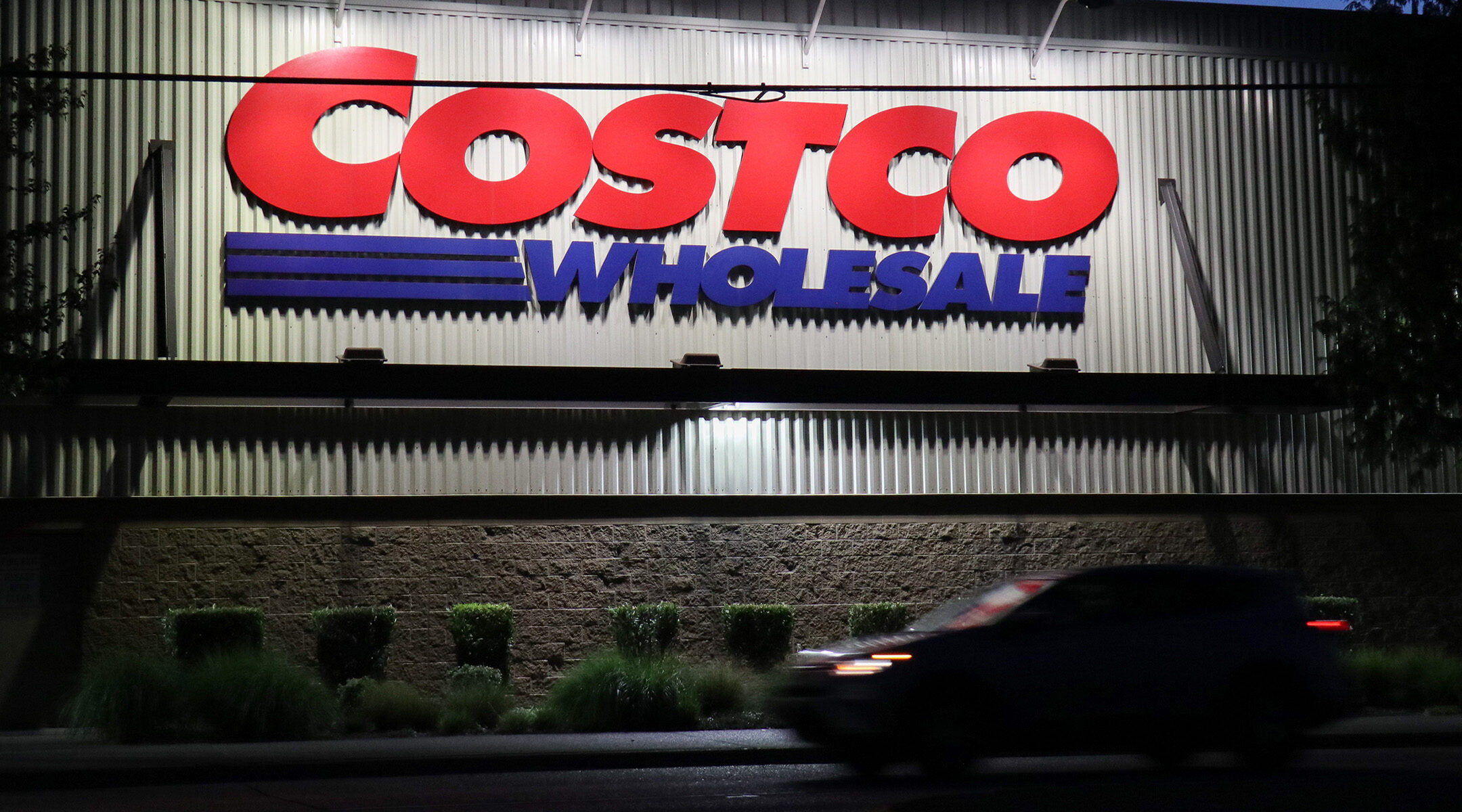(JTA) — Costco named as its February “Buyer’s Pick” a book about Anne Frank that has been taken off the market in the Netherlands, in the latest sign that criticism of the book is unlikely to stem its influence.
“The Betrayal of Anne Frank” made waves upon its release last month because of its explosive conclusion that a Jew had betrayed Frank’s family to the Nazis.
The book, by Rosemary Sullivan, chronicles the work of an investigative team led by a retired FBI agent that identified “with 85% certainty” a notary named Arnold van den Bergh as the person who directed German forces to the Amsterdam hiding place of the teenage diarist, her parents and sister.
But in the weeks after the release, Dutch historians, European Jewish leaders and other authors protested the book, saying that it unfairly impugned a long-dead Dutch Jew without adequate evidence. Some presented evidence suggesting that, rather than being the likely culprit in a historical mystery, van den Bergh was being smeared.
Amid this pressure, the book’s publisher, Ambo Anthos, suspended sales of the Dutch-language translation of the book last week.
“There were obvious problems with the research, and probably the last thing that Ambo Anthos wanted was an authors’ walkout,” Johannes Houwink ten Cate, professor emeritus of Holocaust and genocide studies at the University of Amsterdam, told the Jewish Telegraphic Agency.
But the book remains widely available outside of the Netherlands. Its selection as a Costco pick means that millions of Americans will see a direct appeal to buy and read it, and many likely will. The books was featured on an episode of “60 Minutes” on Jan. 16.
Never miss a story. Sign up for JTA's Daily Briefing.
SUBSCRIBE HERE“I can still remember the effect Anne Frank’s The Diary of a Young Girl had on me,” a Costco book buyer named Alex Kanenwisher wrote in the company’s February newsletter. “So I am very excited to share this month’s book buyer’s pick, The Betrayal of Anne Frank by Rosemary Sullivan.” The newsletter called the book a “modern whodunit.”
According to the book’s critics, the whodunit remains far from solved. They point to details from van den Bergh’s life, including that he himself had gone into hiding before the Frank family was betrayed and that investigators had cleared him of Nazi collaboration after the war, to argue that it’s impossible to conclude that he had given up the family’s location.
Pieter van Twisk, the lead researcher of the cold-case team, told JTA that those facts didn’t refute the book’s conclusion.
“People in hiding often were pressured or extorted into cooperation,” van Twisk wrote in an email approved by Vince Pankoke, the retired FBI agent who led the team. ”As long as you could provide things of value (gold, jewellery, money, stocks, paintings and yes addresses etc.) they might have left you alone.”
Although Pankoke and his team have publicly stood by their conclusions, they said in a statement on their website that it was “very unwise” to assert that the conclusion was “85%” accurate. “This does not represent the degree of certainty” of the study’s results, they wrote in Dutch.
The European Jewish Congress, which represents dozens of Jewish communities in Europe, has formally called for the book to be rescinded. Naming a Jewish culprit in a mystery that has transfixed people of all backgrounds could be “potentially incendiary” at a time of rising antisemitism, the group wrote in a letter to the book’s publisher.
There is no indication that the challenges against the book will change its distribution in the United States, where the book is featured prominently in many bookstores. HarperCollins’ main offices and several regional publishers have not replied to JTA’s requests for comment on the criticism of the book.
Costco’s promotion of the book is “continuing the trend of Americans wanting less to directly talk about the Holocaust and more to talk near it,” tweeted Maris Kreizman, a Jewish author who hosts a podcast about books.
Critics fear that the more the book is read, the more likely it is that van den Bergh will forever be suspected of betraying his fellow Jews.
“The debate that’s happening in the Netherlands is not happening at the same level in Canada and in the United States,” ten Cate said. “That means that I’m not sure that the genie released by the cold case study is ever going back into the bottle.”
The controversy is rippling over into Germany. There, the publisher of the German-language translation, Jürgen Welte, announced it was performing “an internal review” ahead of the intended release date of March 22.
“After two professional edits of the manuscript, we are currently undergoing an internal review,” Jürgen Welte said in a statement. “The comparatively late publication date of the German-language edition shows that we are handling this sensitive topic extremely responsibly.”
JTA has documented Jewish history in real-time for over a century. Keep our journalism strong by joining us in supporting independent, award-winning reporting.






